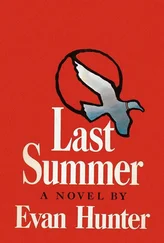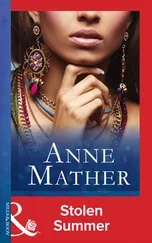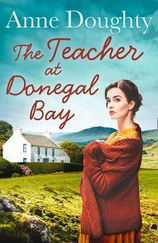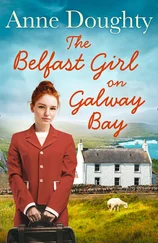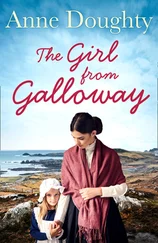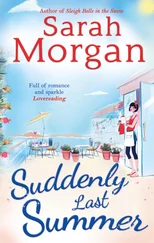‘Cheerfulness, industry and efficiency. These were the keynotes of Pearl’s personality. Whenever she did something she did it well, and the Church had good cause to be grateful for her gifts, for who but Pearl could have organised so efficiently the Christmas bazaar. She would long be remembered for her magnificent needlework and tapestry, for her Swiss rolls and her Christmas puddings.’
I had forgotten the Christmas puddings. We dreaded them. I could see so vividly before me the huge bowl of sticky ingredients, the row of ready-greased containers, and hear the sharp edge in her voice should either of us dare come into the kitchen while she was preparing them. There were boiled eggs for supper when she cooked the puddings for the bazaar. She’d had enough of cooking and washing up for one day, she always said.
I was quite upset when the voice telling me the story about this wonderful woman stopped and instructed me to lift up my heart and sing another hymn. Halfway through, the undertaker’s men smartly turned the coffin through 180 degrees like a military manoeuvre, summoned Matthew to take his place at its leading edge, and left Sandy and me to our own devices.
‘Come on, Deirdre,’ I said to myself, as the funeral director caught my eye. ‘You’re back on parade. Get Sandy moving down that aisle beside you. No one else can move till you do. Another two hours and it’ll all be over.’
It was raining more gently as we stood on the muddy, tramped grass by the open grave. A sheet of plastic grass covered the mound of excavated earth. Like a model of Emain itself, it dominated the wet ditch into which minute rivulets dripped and splashed.
The coffin bore a shiny, brass plaque: ‘Pearl Henderson, Born 21 January 1926, Died 16 May 1986’. The saturated earth fell upon it and obliterated her lifespan.
The funeral director moved us on. Behind us, the undertaker’s men in black coats and well-polished shoes, were filling in the grave as if they were hard at work in their own back gardens. As we reached the paved path at the edge of the churchyard, I saw the departing mourners pause, turn and adjust their face muscles ready to address a member of the immediate family with the customary, ‘I’m sorry for your trouble.’
Rather like going to church each Sunday, even if you never sang, never listened and left it to the minister to do all the praying, to speak these words now would ensure your presence had been noted, a tick entered in the register that mattered most to you – God’s or your neighbour’s.
After the words had been spoken, it was equally important to draw a response from the family member in question, preferably a comment the deceased had made in happier times. This comment would be repeated when the funeral was discussed in those circles where Mother was known, exchanged for similar comments, leaving the speakers confident that they had done justice to the event.
‘Miss Henderson, I’m sorry for your trouble.’
Those who knew me called me Deirdre, but those who didn’t followed the old custom of not allowing marriage to intervene between a daughter and the death of a parent. They lined up and said their piece as they shook my hand.
‘Parker. Fred and Mary. We knew your Mother very well. So sad. Such a loss to the Church. And what a wonderful new shop she made after the bombing. Such energy. I wish there, were more like her.’
I nodded and smiled, thinking of Malvolio. ‘Mother often spoke of you. You used to help on the cake stall, didn’t you?’
There were dozens of them, all ready to present the speech they’d prepared. I’ve always had a good memory for detail and as my mother was voluble about her activities and concerns, I found I could place nearly all of them. Unfortunately, so much of my life passed before me as I did so that I felt like the proverbial drowning man.
At some point, the minister excused himself for another engagement and I became aware of the fact that Sandy and Matthew were nowhere to be seen.
The last hands were shaken, and then, only then, did I realise that the funeral director had been standing behind me all this time, his huge umbrella angled into the drifting mizzle so that it didn’t get in the way, but still protected me from the worst of the rain.
‘It’s a hard day for you’n yer sister. She’s very upset, the young lady is. Yer good man thought he’d best take her back to the house. I daresay they’ll have a nice, hot cup of tea waitin’ for you. You’ll feel more yerself after that.’
That was the only time I lost hold of the proceedings. I mumbled my thanks and as he put me into the back seat of the funeral car I burst into tears and cried the whole way back to Anacarrig. Not for Mother. For a little man with a red nose and a country accent who had held an umbrella over me when he needn’t have bothered.
2
Beyond my bedroom window the swifts wheel and cry in a clear sky. Blackbirds are hunting on the lawn below. It has been a warm, sunny day and now, when my lamp would be lit if I were in London, it is still bright enough to read. I had forgotten how long the light lingers in Ulster. I am further north and further west. It feels like a different world.
A week now since I arrived with Matthew and Sandy, the house cold and dank, closed up since Sandy’s last visit, the rain pouring down as if it would go on for ever. I’ll never forget that Saturday evening with the phone ringing and visitors arriving and all the awfulness of the funeral still to be faced. Now it seems so far away. Even the person I was that evening, the one who said the right things to neighbours and relatives, who handed round cups of tea and glasses of whiskey, seems someone I hardly recognise.
I am beginning to feel different, but I’m not sure in what way. I do know I don’t feel so panic-stricken when I go into Mother’s room any more, certainly not like that first morning when I was determined to stick it out and then turned tail and ran. I don’t push my luck, I don’t stay in there very long at any one time, but I have been managing better.
I’ve made this long list of things I must do, most of which I dread having to do, but I bribe myself, just as I did during all those years of revision for exams, the mugging up of boring stuff for the sake of the results I needed.
My secret weapon is the garden. Two days after the funeral, I took a mug of tea outside and had a look around while it was cooling. I got a nasty shock. The lawns had been cut and the edges trimmed, but nothing else had been done. Mr Neill, who does the grass, was sure to have offered to keep things tidy, but Mother would have insisted she’d be home in no time, so there was no need at all to bother.
There were huge stems of groundsel poking up through the splashes of purple aubrietia and pink saxifrage. The rockery was full of buttercups and sprouting thistles. Before I quite realised it, I had a pile of weeds on the terrace and my tea was stone cold.
It was that first head of groundsel that did it. ‘Out you come,’ I said, as I tweaked it from the rain-softened earth. That’s what my father always said.
The garden had been Mother’s big thing. Even more than her baking, her tapestry, her pickles and preserves, the immaculateness of her garden was one more demonstration of her superiority over the locals. But it was my father who designed and laid it out.
I always assumed it was because she came from Belfast that she felt she had to show the locals she could do just as well as any country person, but maybe that’s not the reason at all. Certainly, however much anyone might argue for Armagh’s historic status as a city, Mother always insisted it was just a country town and its inhabitants were only country people. When my father commented that Armagh was the ancient capital of Ulster and the ecclesiastical capital of all Ireland, she only laughed. Big words and grand phrases were always ‘a lot o’ nonsense’.
Читать дальше
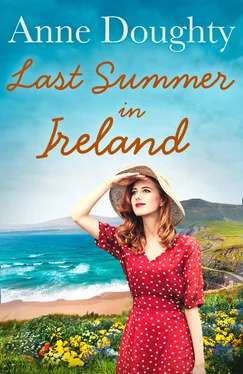
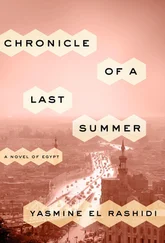
![Маргарет Миллар - Rose's Last Summer [= The Lively Corpse]](/books/384369/margaret-millar-rose-s-last-summer-the-lively-c-thumb.webp)
